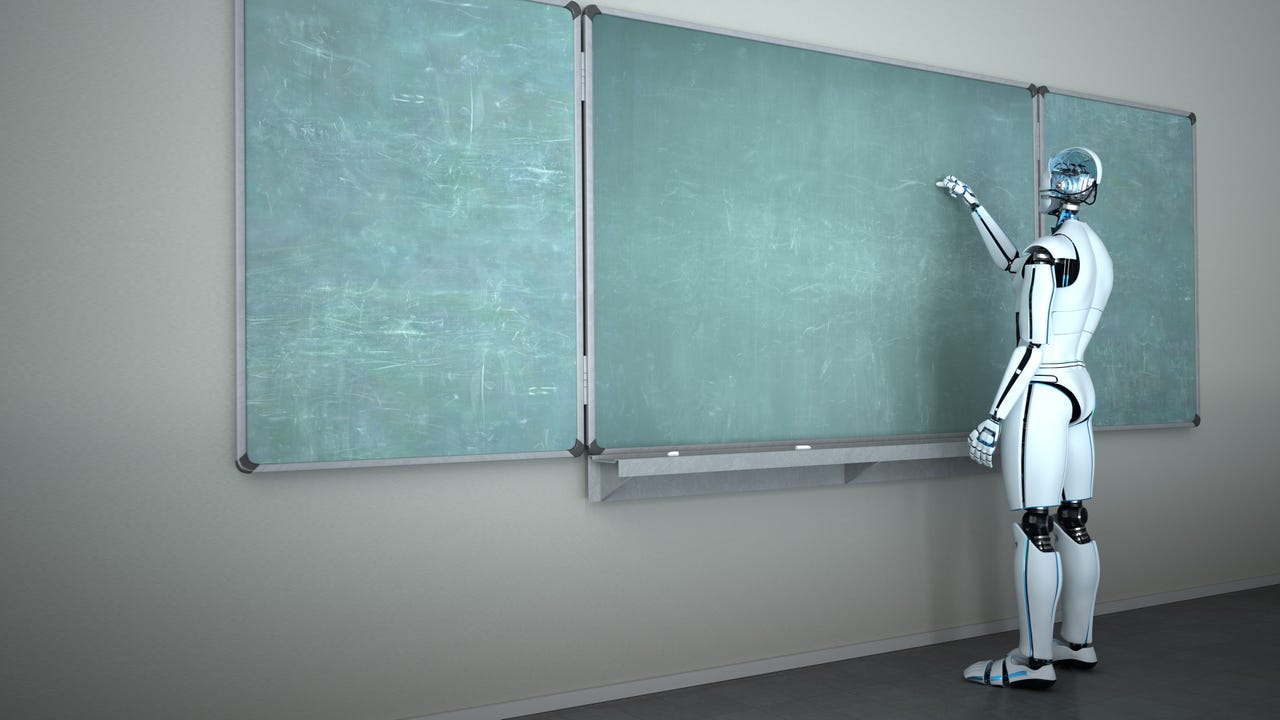































 Image: iStock / Getty Images Plus
Image: iStock / Getty Images Plus One of people's biggest concerns about ChatGPT and AI chatbots is how they will affect the education system. Will the chatbots' technical proficiency make learning certain skills for humans obsolete? To mitigate this issue, some schools are blocking student and teacher access to ChatGPT on their networks entirely. One professor has taken an entirely different approach.
In Depth: These experts are racing to protect AI from hackers. Time is running out
Ethan Mollick, professor at the Wharton School of the University of Pennsylvania, has embraced ChatGPT and AI use in all of his classes. His policy sets an expectation that students must use AI for class -- and learn how to use it well.
The results of implementing ChatGPT into his syllabus were "great," according to Mollick.
To help students maximize their AI use, Mollick provided his students with his guide to using AI to write. He then assigned a project, which required students to use at least five prompts within ChatGPT to produce a five-paragraph essay.
Also: ChatGPT is changing everything. But it still has its limits
The results from the first prompt, no matter how descriptive, always resulted in a mediocre C- essay. However, using different prompts, which provided better instructions, students were able to finetune the results. Students who added user knowledge and co-edited the essay with ChatGPT produced the best results.
The mediocre results teachers typically see when students copy and paste from ChatGPT are a result of students not putting in any real effort into working with the chatbot to produce quality content, Mollick contends.
I think this is important enough that it bears repeating: You can't detect ChatGPT content if people spend any real effort.
- Ethan Mollick (@emollick) February 20, 2023
I know because I had my students "cheat" & use AI; when they co-created essays with the AI, GPTZero failed & the essays read well. https://t.co/NtDh8waCTG
"Producing good AI-written material is not actually trivial," says Mollick. "Getting an AI to produce meaningful content requires both topic expertise and skill."
Mollick says that even if he didn't embrace AI, it is everywhere. Before he taught students how to use the AI chatbot to generate project ideas, students were already doing it. The results of AI assistance in project idea generation were also positive.
"As a result, the projects this semester are much better than previous pre-AI classes," says Mollick. "This has led to greater project success rates and more engaged teams."
Mollick did notice downsides, such as students raising their hands less in class, since they can just ask the chatbot later for an in-depth explanation without having to go through speaking in front of the entire class.
 Hot Tags :
Artificial Intelligence
Innovation
Hot Tags :
Artificial Intelligence
Innovation